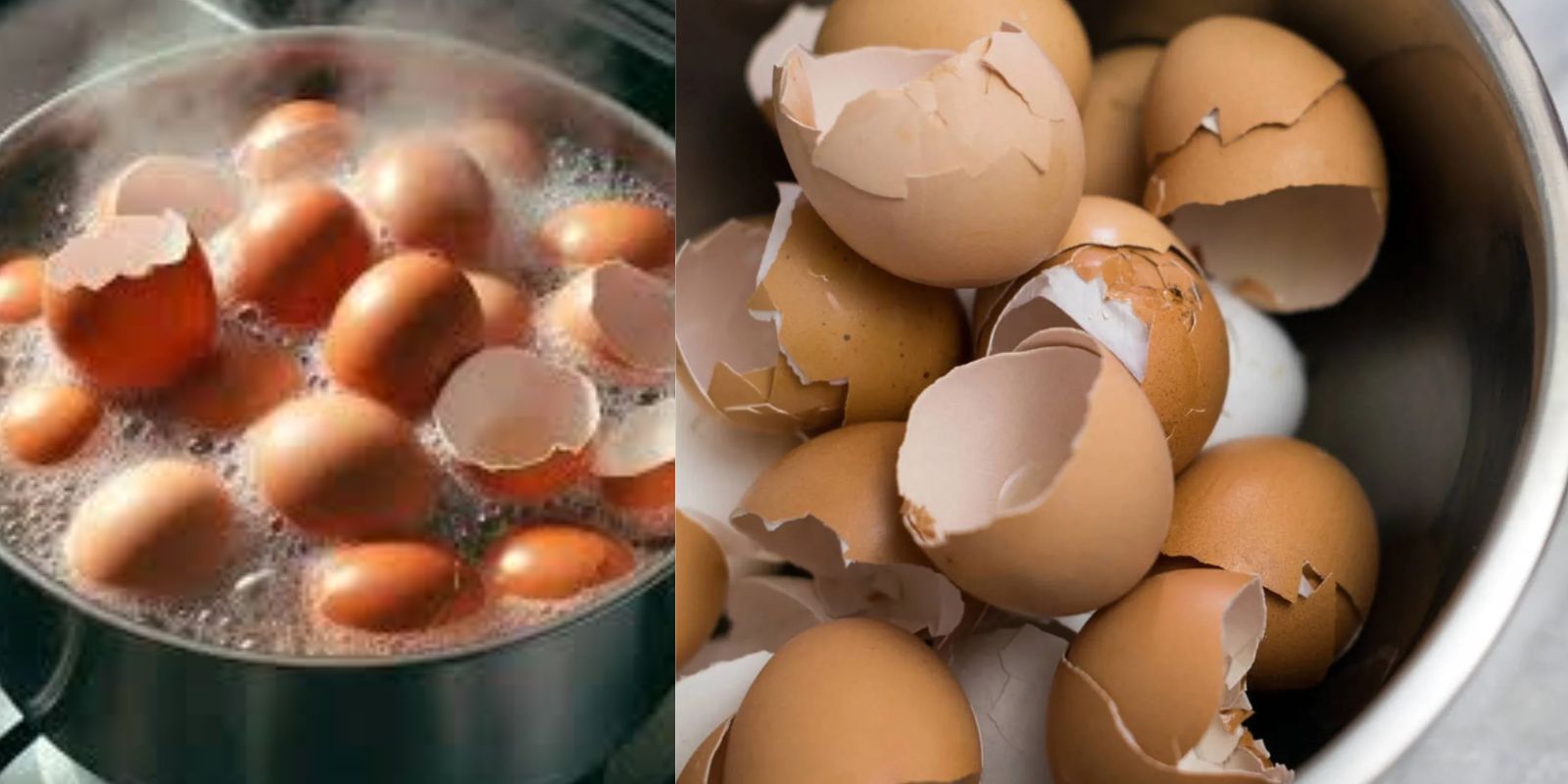In an era where sustainability and cost-effectiveness are more important than ever, finding innovative ways to reduce waste and save money is crucial. One such method, often overlooked, involves a common kitchen waste: eggshells. Boiling eggshells might seem unusual, but this practice can offer both financial and ecological benefits. In this article, we’ll explore how boiling eggshells can be a game-changer for your wallet and garden, along with practical steps to make the most of this simple technique.
1. Why Boil Eggshells?
Boiling eggshells is not only about waste reduction but also about harnessing their natural benefits. Eggshells are rich in calcium carbonate, a nutrient essential for both human health and plant growth. By boiling and using them properly, you can turn a kitchen byproduct into a valuable resource.
Benefits of Boiling Eggshells:
- Nutrient Enrichment: Calcium is a crucial nutrient for plant health. It strengthens cell walls and helps prevent common plant issues like blossom end rot.
- Pest Control: Crushed eggshells can act as a natural deterrent for pests such as slugs and snails.
- Cost Savings: Utilizing eggshells reduces the need to buy chemical fertilizers, saving money in the long run.
2. Collecting and Preparing Eggshells
Before you start boiling, it’s important to properly prepare your eggshells.
Steps:
- Save Your Eggshells: After using eggs, rinse the shells under cold water to remove any leftover egg white or yolk. This helps prevent odors and mold growth.
- Dry the Eggshells: Allow the eggshells to dry completely. You can place them on a paper towel or in a drying rack. Dry shells are easier to crush and handle.
Tip: Keep a container in your kitchen specifically for eggshells. Once it’s full, you’ll have enough for boiling.
3. Boiling Eggshells
Boiling is a crucial step that prepares the eggshells for use in the garden.
Steps:
- Fill a Pot with Water: Place the dried eggshells into a pot and cover them with water. Use enough water to fully submerge the shells.
- Boil the Eggshells: Bring the water to a boil and let it simmer for about 10 minutes. This process helps to sterilize the shells and makes them easier to crush.
- Cool the Eggshells: After boiling, carefully drain the water and let the eggshells cool. Handle them with caution to avoid burns.
Tip: Boiling eggshells not only prepares them for garden use but also helps in removing any remaining membrane, which can make them more effective as a garden additive.
4. Crushing and Storing Eggshells
Once the eggshells are boiled and cooled, they need to be crushed into a usable form.
Steps:
- Crush the Eggshells: Place the cooled eggshells in a clean cloth or between two pieces of parchment paper and crush them with a rolling pin or heavy object. Alternatively, use a mortar and pestle for a finer powder.
- Store the Crushed Eggshells: Store the crushed eggshells in an airtight container or jar. They can be kept in a dry, cool place until needed.
Tip: For even better results, grind the eggshells into a fine powder. This will make it easier for plants to absorb the calcium.
5. Using Boiled Eggshells in the Garden
Crushed or powdered eggshells can be a versatile addition to your garden.
Steps:
- Add to Compost: Mix crushed eggshells into your compost pile or bin. They help to balance the pH and add calcium to the compost.
- Direct Application: Sprinkle crushed eggshells around the base of plants. This provides a slow-release source of calcium and helps to deter pests like slugs and snails.
- Mix with Soil: Incorporate eggshell powder into garden soil before planting. This boosts soil calcium levels and improves plant health.
Tip: Use eggshells as a natural way to enrich soil for tomatoes, peppers, and other calcium-loving plants.
6. Additional Uses for Boiled Eggshells
Besides gardening, boiled eggshells can have several other applications.
Steps:
- Craft Projects: Crushed eggshells can be used in various craft projects, such as creating textured paint or mosaic designs.
- Cleaning Abrasive: Use eggshells as a natural abrasive cleaner for scrubbing pots and pans. They can help remove stubborn residue without scratching surfaces.
Tip: Rinse and dry the crushed eggshells thoroughly if you plan to use them for non-gardening purposes to avoid any potential contamination.
7. Sustainable Living and Cost Savings
Incorporating boiled eggshells into your routine aligns with the principles of sustainable living. It reduces kitchen waste and minimizes the need for synthetic fertilizers. By embracing this simple practice, you not only contribute to a healthier environment but also enjoy financial benefits.
Motivational Note: Start boiling your eggshells today and experience the satisfaction of turning kitchen scraps into valuable resources for your garden and home. This small effort can lead to significant savings and contribute to a more sustainable lifestyle.
Conclusion
Boiling eggshells is a straightforward yet highly effective way to enhance your garden while saving money. By following these steps, you can make the most of this often-overlooked kitchen waste. From enriching your soil with essential nutrients to deterring pests naturally, boiled eggshells offer numerous advantages. Embrace this simple practice and enjoy the rewards of a thriving garden and a more sustainable home. 🌿💡

